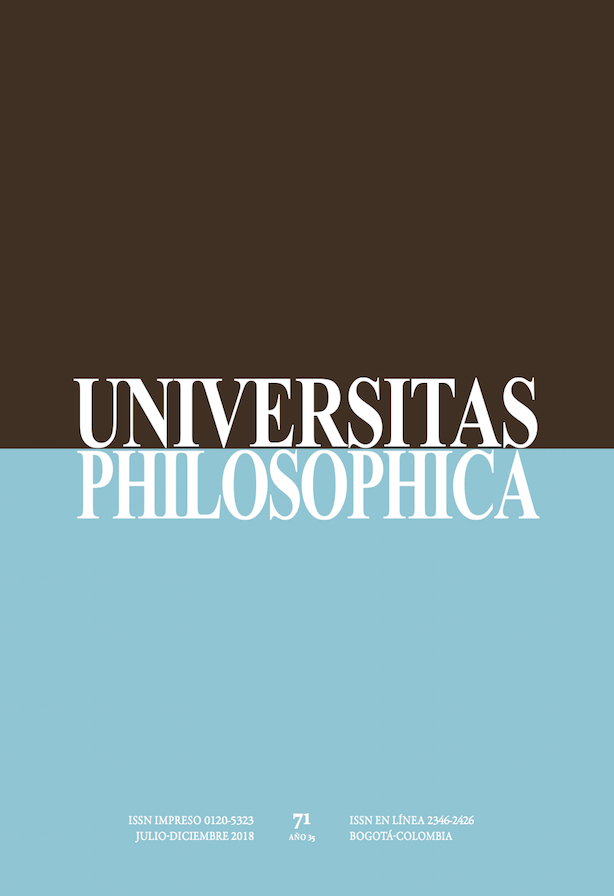Resumo
En este artículo se reflexiona sobre el fenómeno de la espera, interpretado en nuestro propio contexto, pero a partir de un texto de Heidegger. En el mismo se implica que el aburrido espera por el preciso momento de algo de lo cual presume que disipará su aburrimiento. Se procederá a mostrar la estructura interna del tiempo-experiencia del fenómeno de la espera que se experimenta cuando estamos aburridos y cómo el devenir de este tiempo se configura existencialmente en dolor. Para ello, se indagará fenomenológicamente la estructura temporal de tal espera, indicando así cómo dicha estructura transforma la existencia de quien espera aburridamente.
Améry, J. (2005). Levantar la mano contra uno mismo. (Trad. M. Siguan & E. Aznar). Valencia: Pre-Textos.
Cioran, E. (2010). Breviario de los vencidos. (Trad. J. Garrigós). Barcelona: Tusquets Editores.
Heidegger, M. (2015). Los conceptos fundamentales de la metafísica: mundo, finitud, soledad. (Trad. A. Ciria). Madrid: Alianza Editorial.
Kant, E. (2010). Antropología. (Trad. J. Gaos). Madrid: Alianza Editorial. Kerkhoff. M. (1997). Kairos: exploraciones ocasionales en torno al tiempo y al destiempo. Río Piedras: Editorial de la Universidad de Puerto Rico.
Leader, D. (2014). La moda negra: duelo, melancolía y depresión. (Trad. E. Corona). Madrid: Editorial Sexto Piso.
Reichmann, J. (2011). Tiempo para la vida: la crisis ecológica en su dimensión temporal. Bogotá: Taller de Edición Rocca.
Rojas Osorio, C. (2001). Del ser al devenir. Humacao: Museo Casa Roig/Universidad de Puerto Rico en Humacao.
Svendsen, L. (2013). A Phlilosophy of Boredom. (Trad. J. Irons). London: Reaktion Books.
Esta revista científica se encuentra registrada bajo la licencia Creative Commons Reconocimiento 4.0 Internacional. Por lo tanto, esta obra se puede reproducir, distribuir y comunicar públicamente en formato digital, siempre que se reconozca el nombre de los autores y a la Pontificia Universidad Javeriana. Se permite citar, adaptar, transformar, autoarchivar, republicar y crear a partir del material, para cualquier finalidad (incluso comercial), siempre que se reconozca adecuadamente la autoría, se proporcione un enlace a la obra original y se indique si se han realizado cambios. La Pontificia Universidad Javeriana no retiene los derechos sobre las obras publicadas y los contenidos son responsabilidad exclusiva de los autores, quienes conservan sus derechos morales, intelectuales, de privacidad y publicidad.
El aval sobre la intervención de la obra (revisión, corrección de estilo, traducción, diagramación) y su posterior divulgación se otorga mediante una licencia de uso y no a través de una cesión de derechos, lo que representa que la revista y la Pontificia Universidad Javeriana se eximen de cualquier responsabilidad que se pueda derivar de una mala práctica ética por parte de los autores. En consecuencia de la protección brindada por la licencia de uso, la revista no se encuentra en la obligación de publicar retractaciones o modificar la información ya publicada, a no ser que la errata surja del proceso de gestión editorial. La publicación de contenidos en esta revista no representa regalías para los contribuyentes.


